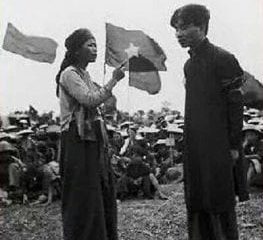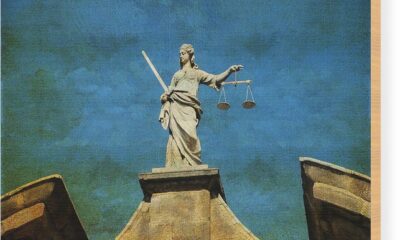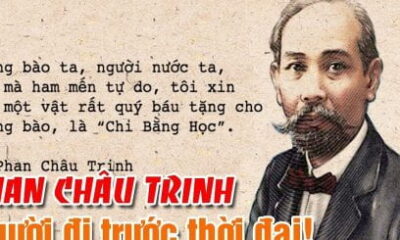Christian Appy’s American Reckoning: The Vietnam War and Our National Identity (New York: Viking, 2015)
Click Here to purchase.
American Reckoning is about how the Vietnam War created a national identity crisis in the United States and how, in the post-Vietnam decades, memory transformed the event from a Vietnamese tragedy into an American one. Throughout the book, Christian Appy criticizes American exceptionalism, that is, Americans’ belief in their country as “a unique force for good in the world, superior not only in its military and economic power, but in the quality of its government and institutions, the character and morality of its people, and its way of life” (xiv). His second line of attack is on American militarism and imperialism. Appy argues that while the Vietnam War shattered the belief in American exceptionalism and dampened militarism, both have since resurged, especially after the September 11th terrorist attacks. While Appy makes a good point about militarism, he commits some of the same mistakes as those that he criticizes. In particular, Appy tells a story of the war that relies primarily on caricatures rather than a deep understanding of a complex event. Appy’s reliance on a questionable version of the past suggests the difficulty of moving forward with the full reckoning that America needs.
The Vietnam War that one encounters in American Reckoning is essentially one between the United States and nearly all Vietnamese, except a minority who supported the Republic of Vietnam government in Sài Gòn. This was the view of the 1960s antiwar movement, which has not stood up to scrutiny in recent scholarship. Appy ignores the active participation of Vietnam’s Communist Party in the world communist movement since the 1930s. One would not know that Chinese communist advisors were sent to assist Hồ Chí Minh since 1950, long before Ngô Đình Diệm took power in 1954. More than a hundred thousand of Mao Zedong’s soldiers and five thousand Soviet personnel were in North Vietnam at the same time as American troops were in South Vietnam. Hà Nội’s militant leaders such as Lê Duẩn, who wanted to wage a war against Sài Gòn, did not even have unanimous support within their own party. They followed Mao in opposing Nikita Khrushchev’s peaceful coexistence policy. They purged and imprisoned their comrades who disagreed with their pursuit of a bloody war in South Vietnam.
Like Mao, Vietnamese communists, especially the more militant and doctrinaire among them, were a threat to their own people. The class struggle they were committed to was a war against most Vietnamese, including the peasantry in whose name the party supposedly acted. During the land reform of 1953-1956, Hồ Chí Minh’s government ordered the murder of tens of thousands of “landlords,” many of whom had been loyal supporters of his government, and most of whom would later be acknowledged by the party as innocent. In the late 1950s, the party launched a rash move to establish collective farms, modeled after China’s Great Leap Forward campaign. Like the Great Leap, this Vietnamese campaign threatened many North Vietnamese villages with famine, years before American intervention. Vietnamese communists also brought destruction to their neighbors Laos and Cambodia. Without Hà Nội’s support, there would not have been a viable communist movement in Laos and Cambodia. North Vietnamese communist troops were in Cambodia and destabilized that country long before large-scale American bombing began in 1970. The Khmer Rouge (Cambodian communists under Pol Pot’s leadership) received Chinese- made weapons through North Vietnam, not directly from China.
At the end of the war, Hà Nội’s leaders pursued the same policies of draconian state oppression and exploitation, with devastating consequences to their people. Millions of people from both North and South Vietnam braved the ocean and pirates to seek an escape, with tens of thousands dying along the way. Vietnamese leaders’ ambition to be the vanguard of world revolution riled their comrades in Beijing and Phnom Penh, contributing to the Third Indochina War between the three communist countries.
This complicated story of Vietnam and Indochina is completely absent from American Reckoning. Appy blames American intervention for war deaths (224), the rise of the Khmer Rouge (227), postwar reeducation camps and refugees (249–250), and practically everything else. He sometimes suggests that Vietnamese communists and Hồ Chí Minh did not turn out to be what antiwar protesters had fancied, but he does not elaborate on what those illusions were and how far they were from reality (318). Appy is effective in critiquing American militarism, but he glosses over the tendency to romanticize the revolutions that American militarism confronted. If many supporters of American military intervention naively underestimated the ability of American power to do harm, many antiwar activists at the time overestimated the ability of foreign revolutionary movements to do good. In fact, many among those who admired Mao and chanted “Che Guevara” and “Hồ Chí Minh” in the 1960s have since reckoned with their naiveté. If Appy had reckoned with this as fully as he did American militarism, American Reckoning would be much more balanced. In addition, Appy would be able to take advantage of recent scholarship on the Vietnam War and expand the scope of his book by linking American and Vietnamese reckonings.
What is the Vietnamese reckoning? If Appy consults recent scholarship on the Vietnam War, he would find that the morals of the war were not just black and white for Vietnamese. Just as it is difficult to distinguish the unpopular Vietnam War from the American soldiers who fought it, it is difficult, and perhaps even impossible, to separate victims from victimizers in Vietnam. Many innocent Vietnamese died as a result of American bombing, to be sure. But Vietnamese were also victims of their leaders’ radical policies traced back to Marx, Lenin, Stalin, and Mao. To the extent that those leaders came to power with significant, if not majority, support, Vietnamese themselves share the blame.
This Vietnamese reckoning should interest Appy. In recent years, the Internet has given all Vietnamese the opportunity to access information about aspects of their history that government propaganda has deliberately distorted. This had led to the widely shared view today among Vietnamese intellectuals, including many party members and their children, that the country had been misled by Hồ Chí Minh and his Communist Party, which contributed to decades of savage fraternal warfare, economic backwardness, and cultural decay. The country was liberated from its colonial masters with so much bloodshed only to be enslaved by communist dictators.
Some Vietnamese still blame the United States for not recognizing Hồ Chí Minh’s government in late 1945. In light of new evidence, however, it is doubtful that this recognition would have rescued that government from the grips of radical communism. Even Vietnamese who want to absolve Hồ Chí Minh for having introduced communism to Vietnam cannot forgive other leaders as easily. In this view—profoundly subversive from the Vietnamese government’s viewpoint—the United States has emerged as a force for good, and many Vietnamese now wish their country had traveled the road taken by Japan, South Korea, and Taiwan—all American allies that were successfully protected or rescued from communism and which are prosperous and democratic today. History was cruel to Vietnam, but its tragedy had its origins in great part in its communist revolution, and the Americans played a role that was potentially positive but eventually marginal. To the extent that this emerging view among Vietnamese intellectuals has an element of truth, it contradicts Appy’s blanket criticism of American exceptionalism.
In the concluding paragraph of his introduction, Appy argues: “If the legacy of the Vietnam War is to offer any guidance, we need to complete the moral and political reckoning it awakened…. Only an honest accounting of our history will allow us to chart a new path in the world. The past is always speaking to us, if we only listen” (xix). The contested legacy of the Vietnam War deserves continuing study, but scholars should not listen only to a version of the past they personally like to hear. That would amount to claiming the American nation for oneself while denying it to others.
Tuong Vu, University of Oregon
Republished from Journal of Vietnamese Studies, Vol. 11, Issue 1, pps. 129–132. © Copyrights by The Regents of the University of California. All rights reserved.

 Politics & Economy4 years ago
Politics & Economy4 years ago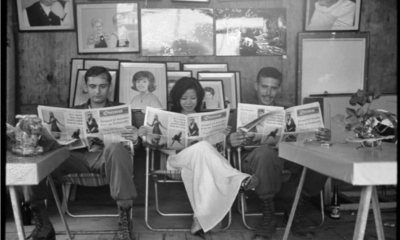
 Politics & Economy2 years ago
Politics & Economy2 years ago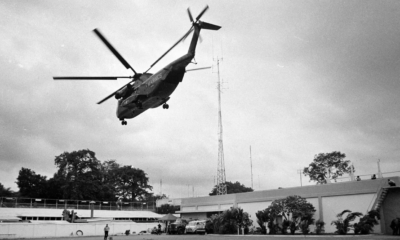
 After 19751 year ago
After 19751 year ago
 Society & Culture5 years ago
Society & Culture5 years ago
 ARCHIVES5 years ago
ARCHIVES5 years ago
 Politics & Economy4 years ago
Politics & Economy4 years ago
 Politics & Economy5 years ago
Politics & Economy5 years ago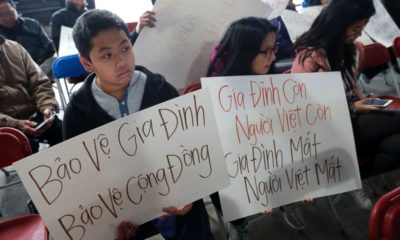
 Vietnamese-America4 years ago
Vietnamese-America4 years ago


